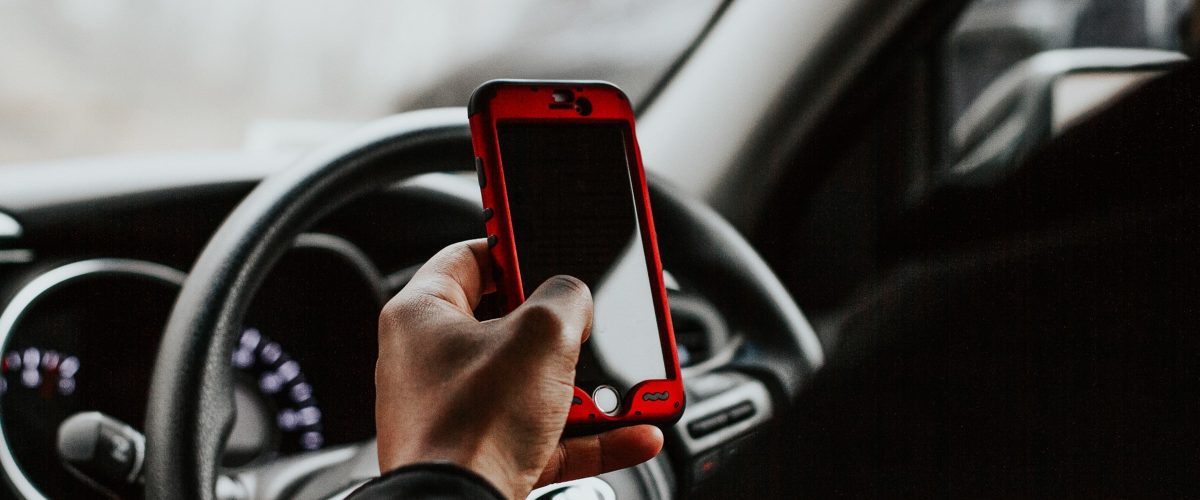Drive along any road, at any time day or night, anywhere in South Africa and you will be gobsmacked by the number of motorists who text whilst driving. For each person you see whose eyes are glued to the screen of their handset, there is another person on the other end of the line equally guilty of causing a potentially fatal driving situation.
For events coordinator, Ayanda*, the cold and harsh reality of interacting with someone who was driving, irrevocably changed her life forever when she inadvertently contributed to the fatal road accident which claimed the life of her fiancé, Vincent*, 6 weeks prior to their big day.
Mixed emotions grew within me as I awaited Ayanda’s arrival for our interview. On the one hand, I marvelled at her courage for sharing such a personal story but couldn’t help being furious about her and Vincent’s carelessness. On the other, my heart broke for her and I was wrecked with fear because this is something which could happen to anyone. In the midst of all that, I also felt a sense of hopelessness as the reality of how ineffective the road safety #dontdrivedistracted messages really are.
If you had told me that being on the phone with someone who was driving could cause an accident, I might have paused
-Ayanda
I signaled to the woman wearing a bright green blouse at the entrance of our meeting spot and watched Ayanda glide across the room towards me. When she took off her designer sunglasses and I looked into her eyes, I was ill prepared for the pain of what she was about to share.
“If you had told me before the accident that being on the phone with someone who was driving could cause an accident I might have paused; but all the road safety messages I had ever heard and seen were directed at the driver and not at me, the person safely seated at their desk or at home. Maybe I would have been more strict with Vince about using Bluetooth and would not have texted him. Maybe he would still be alive”. Her voice was barely a whisper.

As she sipped on her water, I reflected on how many people, like Ayanda and Vincent believe that accidents happened to other people. In this instance however, the accident had happened to them, directly to Vincent, and with massive ramifications on Ayanda and their combined families.
“Vincent’s car was an extension of his office.” Ayanda’s soft voice penetrated my thoughts. “He made and received calls all the time whilst driving and even responded to texts and emails”, she continued. “In truth, he was involved in many near misses, and whenever I was in the car with him I would have to be his eyes and give him instructions to slow down whenever I noticed that he was too engrossed in a conversation to notice that the traffic light was turning red and that he needed to slow down. I did ask him not to use his phone so much but he would say he was working to make money for us. I couldn’t argue with that,” she said.
Whenever I was in the car with him I would have to be his eyes and give him instructions to slow down
-Ayanda
As our conversation unfolded, Ayanda confided that on the day of the accident, they were going on a romantic weekend away and that he had been scheduled to fetch her from her office at lunchtime. They had both been feeling stressed about the demands made by their families and the ever escalating costs of the wedding.
“We just needed some time out you know, just to regroup and focus on each other.” Her voice trailed off and there was a moment of uncomfortable silence before she continued. “I was barely paying attention in the meeting I was in, the client just kept repeating everything everyone had already said, so I started a Whatsapp conversation with Vincent to keep myself entertained.”

This was the only time her eyes lit up and she actually smiled. “Our chat was naughty and hot as always but halfway through he just stopped responding. At first I thought he was on a call, but 30 minutes later he still hadn’t texted me back. The meeting ended and I called him immediately but didn’t get an answer. He still hadn’t called or texted by lunch time when he was meant to have arrived at my office and I had begun to feel angry. I imagined he had agreed to have a ‘quick meeting’ and hadn’t told me because he knew how I would react,” her chuckle faded along with the brief twinkle that had been in her eyes up until this point.
Ayanda says she had tried to re-focus on her work whilst putting on a brave face for colleagues who were surprised that she was still in the office. “I called a taxi and angrily shoved my bags into the boot, holding back tears of frustration and faking a smile at the friendly taxi driver who had started on about the weather. “It never occurred to me that anything could have gone wrong, so when I got home, I called his friends to enquire about his whereabouts”, she recalls.
All the road safety messages I had ever heard and seen, were directed at the driver and not at me, the person safely seated at their desk or at home
-Ayanda
Hours later, Ayanda was woken up by an insistent buzzing of her doorbell, but her excitement and relief soon changed to inconsolable grief when she opened the door to the anguished look from the would have been best man of their wedding, telling her that Vincent had been in an accident earlier that morning.
Through the ensuing haze, Ayanda learnt that the fatal accident had occurred at 11:06, right in the middle of her text conversation with Vincent. According to police and eyewitnesses, Vincent had driven his sedan at high speed into the rear of a truck at a four way stop and had succumbed to his injuries almost immediately. He had not had time to react in any way, hence there were no skid marks on the road. Motorists whom he had passed a short distance prior reported seeing a man holding his phone whilst driving, seemingly texting.

What every motorist needs to know is that the human brain is physically unable to do more than one task at a time, hence it is not possible to give one’s full attention to the intricacies of driving whilst engaged in any other task such as texting, reading a map, etc. When driving distracted, our brains cannot register critical visual information which is why motorists tend to look at an object but not see it. In other words, a driver can be looking out of the windscreen at the car in front of theirs but not mentally process that there is indeed another vehicle there.
I agreed to do this interview so that I could share my story with others. We don’t talk about such things yet these things happen
-Ayanda
This is called cognitive blindness because the portion of the brain whose function it is to register such information would otherwise be engaged in the other task the driver would have allocated to it, such as texting. Cognitive blindness affects the crucial motor skills (e.g. eye, hand, foot coordination) required to react to the fast paced and ever changing driving environments of everyday life.
When you drive distracted your behaviour can often be described as erratic. Also, when you drive distracted;
- your car typically veers off its intended course – usually by crossing into other lanes or traveling towards onto oncoming traffic
- you hit the brakes more sharply than planned when your mind ‘comes to’
- or you don’t touch the brakes at all

Ayanda suffered a nervous breakdown and was hospitalised for almost 6 months in a psychiatric ward. She lost a considerable amount of weight as well as her job, car and apartment. It has taken her almost two years to regain herself and she still battles with feelings of guilt and regret. Her friends and family have learnt to switch their phones off when driving and she has had to rebuild almost every area of her life including the courage to drive (as she associated driving with Vincent’s death).
“I agreed to do this interview so that I could share my story with others. We don’t talk about such things yet these things happen. No one should go through what I have gone through and I just want everyone to know that it’s not just a call or a text, it is your life and it is the lives of those who love you. Seriously, guys don’t drive distracted”.
As I watched her leave at the end of our interview I felt almost as drained as she looked. Once again my emotions were in roller coaster mode. I couldn’t begin to imagine what Ayanda and Vincent’s families had gone through, and I was pained at how their worlds had unnecessarily changed. In my mind, Ayanda is now the poster child for the consequences of driving distracted and she and those around her have learnt an incredibly simple lesson in the cruelest way possible.
I can only hope, that her story will be more effective than our tireless #dontdrivedistrated message and most importantly, that her courage in sharing her story won’t be in vain.
*Names have been changed. ** This real-life interview was conducted by Vuyi Mpofu






